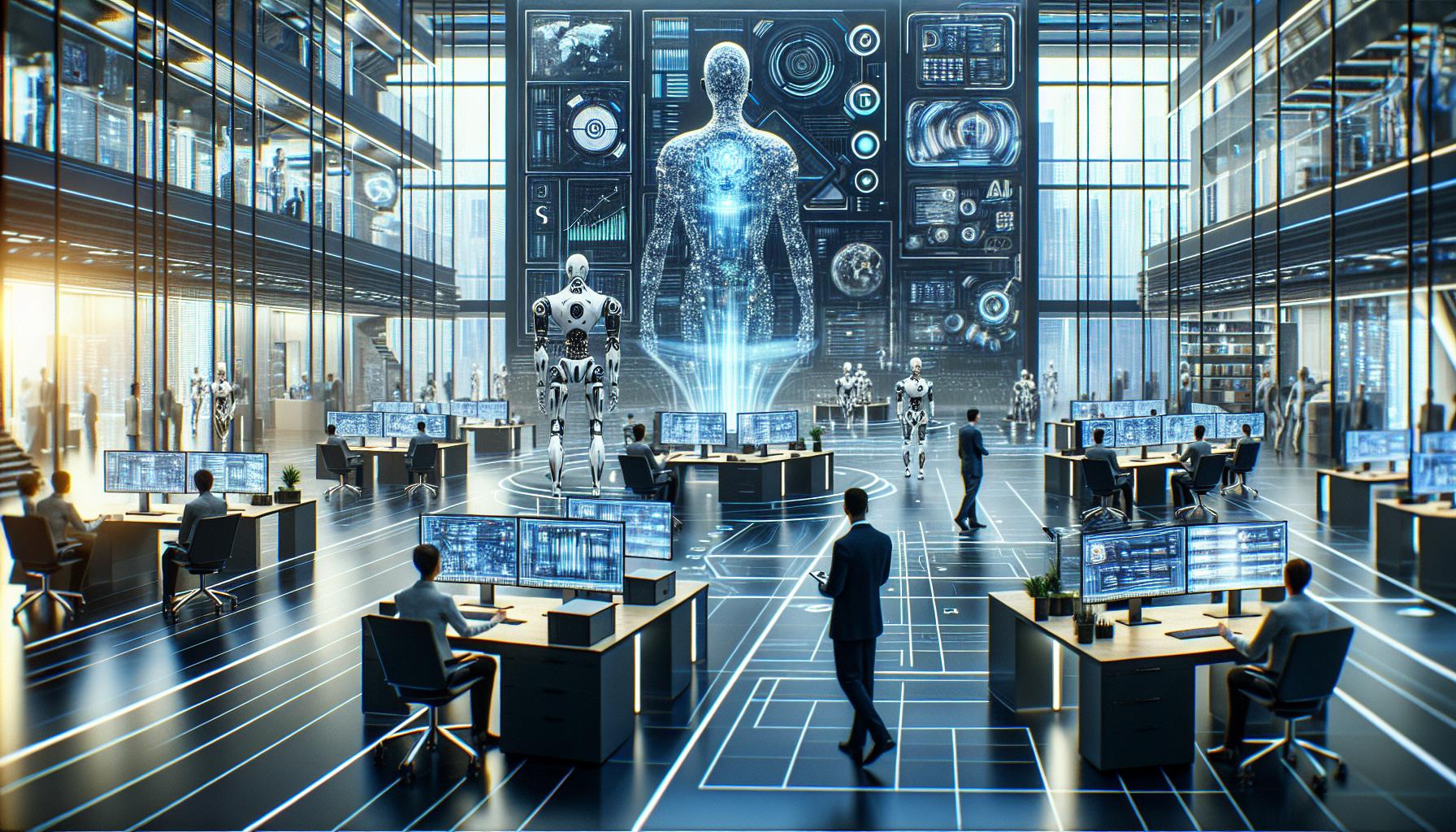2024: The Year AI Transforms The Workplace - Insights from Microsoft, LinkedIn & RAIA

Introduction
As we step into 2024, the integration of Artificial Intelligence (AI) into the workplace brands this year as a hallmark of significant transformation. The adoption rate of generative A.I. has nearly doubled in the past six months, evidenced by the adoption of 75% of global knowledge workers. The need for A.I. in coping with increased work volume is evident, shifting from mere experimental phases to critical business transformations.
The Emergence of A.I. in Daily Operations
A burgeoning wave of A.I. adoption has swept through workplaces, bolstering the capabilities of knowledge workers worldwide. As work demands intensify, many employees are not waiting for corporate directives but are proactively integrating A.I. tools to manage their workloads effectively. The statistics are compelling: the use of generative A.I. tools has surged, showcasing a drastic shift in how work is approached and executed with these technologies.
The Leadership Dilemma
Despite widespread agreement on the necessity of A.I. for business continuity and growth, a vast discrepancy exists in organizational readiness and strategic implementation. Many leaders, while recognizing the imperative of AI, are stuck in inertia, driven by the pressure of demonstrating immediate returns on A.I. investments. This challenge is not isolated but a widespread issue affecting global workplaces, which must be addressed to harness AI's full potential effectively.
AI and Business Transformation: Beyond Experimentation
Historically, transformative technologies such as the internet and PCs have reshaped industries through broad adoption. A.I. is poised to follow this trajectory, promising substantial impacts on operational efficiency, cost management, and customer value provision. Enterprises that strategically embed A.I. in their core operations are setting themselves apart in the competitive landscape, aligning A.I. capabilities with long-term business goals.
The Labor Shift: AI's Role and Opportunities
The labor market is undergoing a transformative phase where A.I. skill sets are beginning to rival traditional experience. Amid a talent crunch in crucial roles, A.I. emerges as both a solution and a challenge. For many workers, A.I. will not spell job redundancy but will elevate their roles and break conventional career ceilings. This paradigm shift is fostering both opportunities and demands for a re-skilled workforce aligned with A.I. competencies.
Microsoft and LinkedIn's Invaluable Insights
Valuable insights have been distilled from Microsoft and LinkedIn's extensive survey encompassing 31,000 individuals across 31 nations, labor trends from LinkedIn, productivity signals from Microsoft 365, and collaborative research with Fortune 500 enterprises. These insights are pivotal for leaders and organizations aiming to leverage A.I. effectively to recalibrate their workforce and operational models in light of AI's capabilities and impact.
Unlocking AI's Potential with RAIA
To mitigate the stalling effect of A.I. adoption inertia, RAIA offers a dedicated platform where businesses can innovate safely. RAIA allows enterprises to build, train, and test A.I. models in a secure sandbox environment, promoting a controlled yet progressive exploration of A.I. applications. This strategic approach ensures that organizations not only adopt A.I. but do so in a manner that is aligned with their operational goals and risk management protocols.
Conclusion
The inexorable intertwining of A.I. into the workplace fabric is not a transient trend but a definitive shift towards smarter, more efficient work environments. With structured approaches and strategic tools such as those provided by RAIA, businesses are well-positioned to transform these AI-driven potentials into tangible achievements, leading the charge in the evolving industrial landscape.

